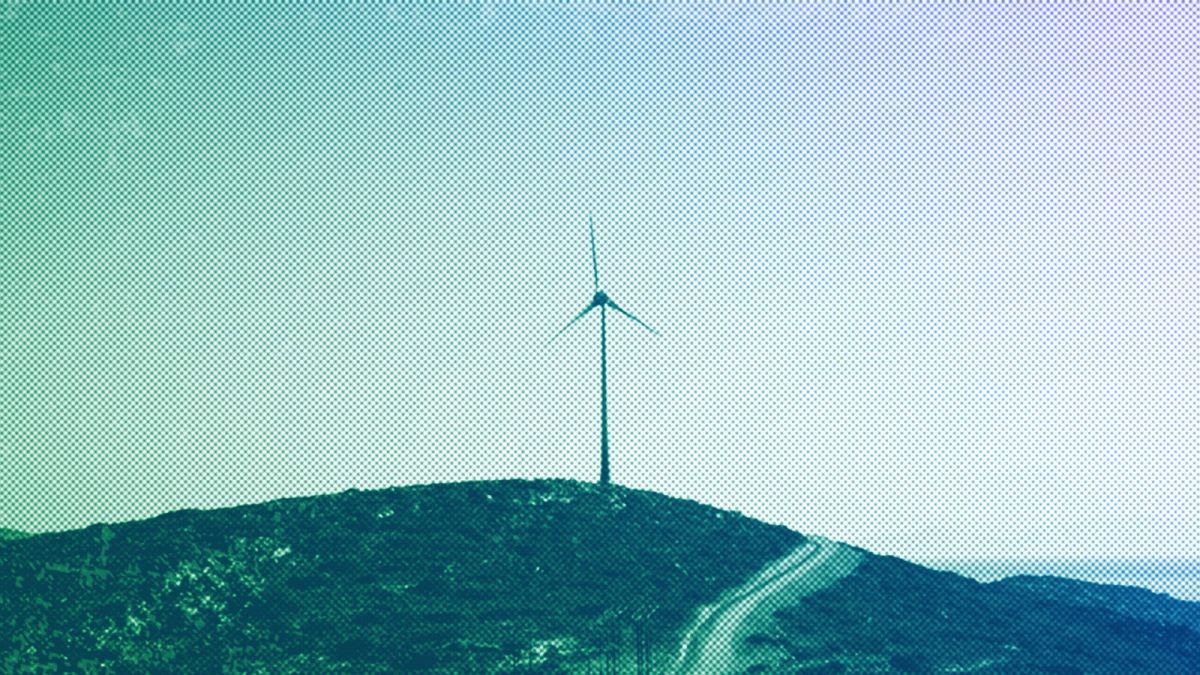In Greece, renewable energy achievements are no hot air
The opinions expressed in this article are those of the author and do not represent in any way the editorial position of Euronews. Wind will only get us partway to our objective. Time is running out: ocean-based wind, solar, tidal, and carbon storage will all have to be on the table if we hope to […]


The opinions expressed in this article are those of the author and do not represent in any way the editorial position of Euronews.
Wind will only get us partway to our objective. Time is running out: ocean-based wind, solar, tidal, and carbon storage will all have to be on the table if we hope to meet our goal, Greek Minister of Environment and Energy Theodoros Skylakakis writes.
The blue economy’s potential to drive global sustainable development will be front and centre this week when the Greek government hosts the ninth Our Ocean Conference here in Athens, against the backdrop of the Mediterranean Sea.
Since 2014, leading figures from government, business, civil society, and academia have been gathering at the annual event to take on some of the ocean’s biggest challenges, like climate change, overfishing, pollution, and biodiversity loss.
In that time, the international community has mobilized 2,160 commitments worth over $130 billion (€119.7bn) and protected hundreds of thousands of square miles of ocean.
But building a sustainable blue economy is as much about creating good paying jobs for people on land as it is about conservation at sea. The latest economic data shows that on the whole, sustainable ocean-based investments yield benefits at least five times greater than the costs.
Last year’s meeting in Panama alone saw 341 new commitments for action worth an estimated $19.9bn (€18.3bn). This year we are calling on participants to bring even more ambitious announcements.
Greece, for our part, will use the opportunity among other priorities and very important environmental commitments to also showcase the rapid progress we are making in offshore wind development, which holds enormous promise to accelerate our efforts to mitigate climate change, build energy security and create thousands of good paying jobs here and around the world.
Breaking renewables records again and again
Perhaps our most symbolic decarbonisation milestone came in October 2022 when renewable energy sources — wind, solar, and hydro — were able to meet 100% of the country’s electricity demands for five consecutive hours.
We are looking forward to breaking the record again and again, as we maximize RES-produced energy in our diversified energy mix – comprising both “bridge fuels” and renewables.
It may sound insignificant, but at the time renewables only made up about half of our energy mix. For short periods, onshore wind alone showed over 70% penetration into the electrical grid, illustrating the extent of Greece’s wind resources.
The following year, the government announced a plan to dramatically improve this performance by partnering with the Greek energy company HERENA to install at least two gigawatts of offshore wind capacity by 2030–enough to power about 1.5 million households.
The first two licenses for Pilot Offshore Wind Farms have been awarded. We are now preparing to auction a second phase of pilot licenses and conduct a new round of measurements to prepare additional sites for potential investors.
Not only will the plan help us cut emissions and meet our international obligations, it will also support some of our leading industries like shipbuilding and cable manufacturers.
Fully acknowledging and confident in the country’s capabilities and potential, the government seeks to collect information from the pilot licensing of offshore wind farms, to test and further build the supply chain needed to support the project’s next phases.
If not now, then when?
We all still have a long way to go for the world to transition to a net-zero economy by 2050 — our best chance of avoiding the worst impacts of climate change, which today is by far the biggest threat to our ocean.
But, according to the IEA, global renewable capacity additions increased by almost 50% to 510 gigawatts in 2023, the fastest expansion in the past two decades. The Global Wind Energy Council forecasts that another 380 gigawatts of offshore wind capacity will be added in the next decade.
Of course, accelerating the deployment of wind will only get us partway to our objective. Time is running out: ocean-based wind, solar, tidal, transport, conservation, and carbon storage will all have to be on the table if we hope to meet our goal.
What better place to participate in this important global effort than the Our Ocean Conference surrounded by the turquoise waters of the Mediterranean? If not here then where? If not now, then when?
_Theodoros Skylakakis is the Minister of Environment and Energy of Greece.
_
At Euronews, we believe all views matter. Contact us at view@euronews.com to send pitches or submissions and be part of the conversation.














